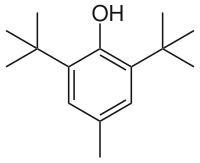
Photo from wikipedia
OBJECTIVE Social relationships can both influence and be influenced by immune processes. Past work implicates two distinct pathways along which this interaction may occur: inflammatory processes and antiviral processes. This… Click to show full abstract
OBJECTIVE Social relationships can both influence and be influenced by immune processes. Past work implicates two distinct pathways along which this interaction may occur: inflammatory processes and antiviral processes. This article reviews how social behavior is modulated by these two immune processes and how such processes may in turn regulate social behavior. METHODS This narrative review outlines existing work on social behavior and both inflammatory and antiviral processes. We propose an evolutionary framework that aims to integrate these findings. Specifically, social isolation has evolutionarily increased the likelihood of wounding and therefore increased the need for inflammation, which works to promote healing. Conversely, broader social networks provide protection from physical threats but also lead to increased pathogen exposure, necessitating a more robust antiviral response. RESULTS This review highlights that social adversity, such as social exclusion or loneliness, is associated with increased inflammation, whereas social contact is associated with increased antiviral immunity. Furthermore, increased inflammation leads to sensitivity to social stimuli, presumably to avoid hostile conspecifics and approach allies who may provide care while vulnerable. Individuals with inadequate antiviral immunity engage in behaviors that minimize pathogen exposure, such as reduced affiliative behavior. CONCLUSIONS This review suggests that adverse social experiences (social isolation, perceived social threat) may induce inflammatory responses while suppressing antiviral immunity, whereas positive experiences of social connection may reduce inflammation and bolster antiviral responses. Although acutely elevated inflammation would be adaptive under conditions where wounding is likely, chronic inflammation related to continued social adversity may have detrimental health consequences.
Journal Title: Psychosomatic Medicine
Year Published: 2019
Link to full text (if available)
Share on Social Media: Sign Up to like & get
recommendations!